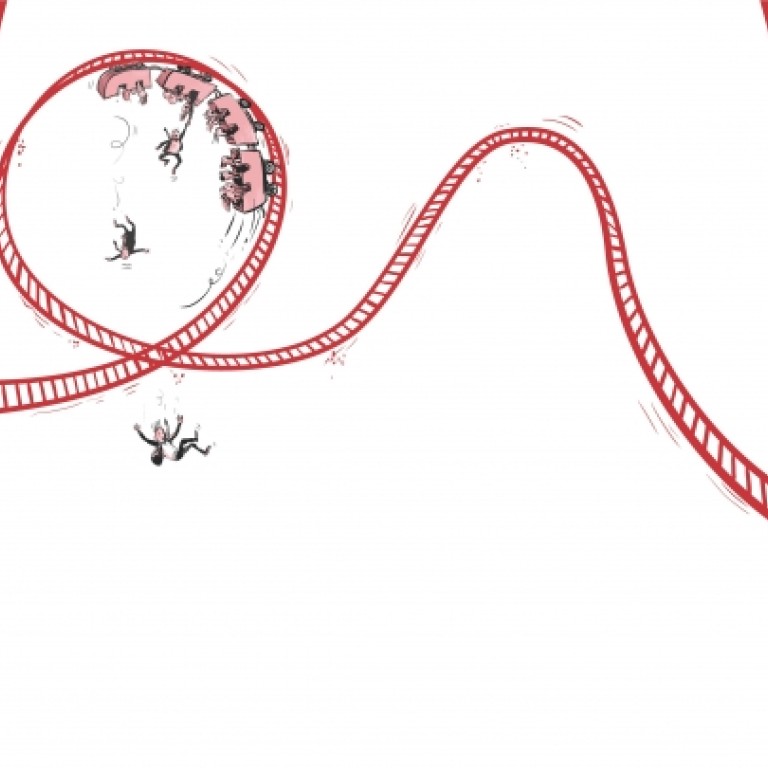
Chinese community struggles to ride out the strain in Spain
The second of a two-part series on China's growing influence in Europe looks at professionals facing the cold stares of a cynical Spain
In the early hours of October 16, police in Madrid raided the home of Chinese businessman and philanthropist Gao Ping, arresting him and about 100 of his employees and partners, most of them Chinese immigrants.

It was another blow to Chinese immigrants and locals who have spent years trying to build bridges between the two countries. It came as the dire economic situation has left 27 per cent of Spaniards unemployed and as distrust of the Chinese is growing.
While Chinese immigrants have been recorded in Spain since the 16th century, the biggest wave arrived in the 1980s, many from Qingtian county in Zhejiang province, northwest of Wenzhou , which has also sent huge numbers of migrants to Europe. The biggest communities are in Madrid, Barcelona and the Canary Islands.

Zhou arrived in Spain in 1985 and became a tenured professor at the Autonomous University of Barcelona in 1988, just six years after he graduated in Hispanic studies at the Shanghai International Study University.
When the Olympics came to Barcelona in 1992, Zhou had a golden opportunity to build Sino-Spanish ties when speaking to the then president of Catalonia, Jordi Pujol.
When the politician told Zhou, tongue-in-cheek, that he would prefer to have a Chinese translator "from here", Zhou replied: "Mr president, it is impossible because we have not got even a single Chinese dictionary, manual or grammar book."
With the support of the Catalan government, Zhou published the first Chinese-Catalan dictionary within a year, soon followed by the first Chinese-Spanish dictionary. The books have since been used by thousands of Spaniards learning Putonghua.
In 2003, Zhou pioneered a master's degree in Chinese-Spanish translation and interpretation. Three years later, it had evolved into a master's in China-European Union relations, covering business and culture as well as language.
"Most of our alumni now work for Chinese multinationals in Spain or Latin America, for big Spanish corporations in China, for the Spanish embassy and consulate in Beijing and Shanghai and even for Catalan institutions," Zhou says.
The graduates may well find themselves working for a company like Telefonica, the giant private telecommunications firm and Spain's biggest multinational by market capitalisation.

In 2010, she set up China Club Spain, the first association for young Chinese executives working in Spain for local and foreign multinationals. Chen says the club has three dimensions.
It aims to build a community around professionals confronting similar challenges, provide a pool of highly qualified Chinese candidates for job vacancies and develop relations with the Spanish institutions focused on attracting Chinese investment.
The third goal sees the club hold big public events and smaller social and sporting activities, bringing together dozens of Chinese and Spanish participants.
Chen says their choice of a traditional Spanish game is evidence of their commitment to local culture - and fair play.
"We play padel tennis instead of ping pong or badminton, in which the Chinese would have the upper hand," she jokes.
Chen's experience in the past two decades underscores the challenges the Chinese community faces.
When she arrived, her goal was to "show that a professional coming from a poor, less developed country had something to say here". Now, as Spain falters and China booms, she says: "Our challenge is to refute that China's investments or citizens are here to threaten smaller countries' way of life." The arrest of Gao and the media backlash that followed gave a human face to that "China threat theory".

He had helped them before. Thousands of Chinese work for or own grocery stores and in 2011 they became alarmed when some regional governments demanded they obtain a "second licence" to sell alcohol. Many shopkeepers lacked such a permit and found the process of getting one painfully slow.
Suarez organised a protest by hundreds of Chinese merchants outside Madrid's city hall, eventually prompting a climbdown in the face of huge media interest.
Suarez says he anticipated the problems the Chinese community, especially those who arrived in the 1980s, would face. "During the last 25 years since their arrival in Spain they have remained mostly silent and isolated," Suarez says.
"Their Spanish is rather weak, to the point of complicating their social integration, and their completely different culture elicits both deep curiosity and suspicion."
When the Chinese associations approached him after Gao's arrest, Suarez pressed them to name seven spokesmen and women between them, a big step for organisations riven by infighting that had prevented them from coming together to form a common federation.
He also introduced them to high-ranking officials and police, and the journalists who cover the Chinese community". This led to "more positive stories and the authorities understanding that most of them are law abiding".
The Casa Asia, a body affiliated with Spain's Ministry of Foreign Affairs, needed no persuasion to share that view.

Patin Laloy's department has organised research projects concerning the Chinese community in Madrid and Catalonia, a popular festival that includes Chinese folklore, a monthly language laboratory in which the Chinese help others to learn their mother tongue and improvisational theatre that includes discussions of hot political issues.
As the autumn anniversary of Gao's arrest approaches, Patin Laloy will stage her popular Asian festival, Chen's China Club will hand out awards for outstanding contributions to Sino-Spanish relations and Zhou will hold an annual event bringing together Chinese multinationals and their Spanish peers.
But Suarez sees cause for concern. He believes many in the Chinese community are retreating to their walled-off lives. They leave it to their children, who attend local schools, to speak Spanish and complete the task of integrating into the community.
